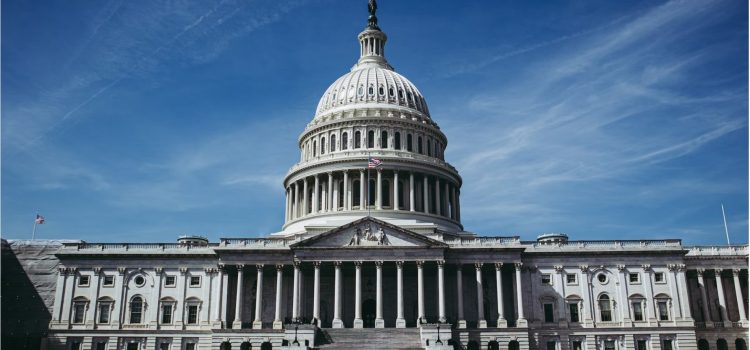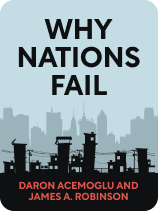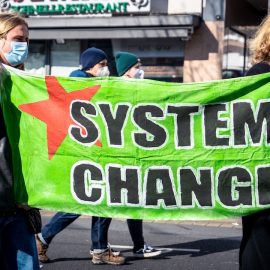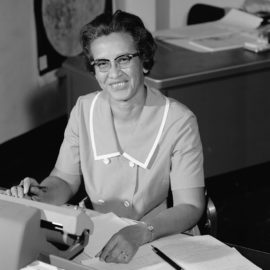

This article is an excerpt from the Shortform book guide to "Why Nations Fail" by Daron Acemoglu and James A. Robinson. Shortform has the world's best summaries and analyses of books you should be reading.
Like this article? Sign up for a free trial here.
What is political development? What drives a country to evolve?
Authors Daron Acemoglu and James A. Robinson argue that failing nations follow an “exclusive” structure (exploiting citizens to benefit national leaders). In How Nations Fail, they explain how political development can drive exclusive countries to become free, fair, and accessible to society at large.
Read on to learn how political development can change a failing nation into a successful one, or vice versa.
Political Development: Why Nations Change
In Why Nations Fail, economist Daron Acemoglu and political scientist James A. Robinson create a theory to explain international inequality. Acemoglu and Robinson then explain how political development can drive national change—how “exclusive” nations can become “open” or vice versa.
The authors suggest that there are two main ways that nations can fundamentally change their institutions:
1) Critical moments: Nations can change as a result of “critical moments,” or historical events that threaten economic and political upheaval. Such upheaval challenges a nation’s status quo and creates opportunities for the redistribution of wealth and power. Then, whoever gains wealth and power from this redistribution can use it to impact political and economic change. For example, the coronavirus pandemic is causing major political and economic upheaval and redistributing wealth and power—from the growth of anti-vaccination movements to “the great resignation,” where many workers quit or changed their jobs to try and improve their economic circumstances.
(Shortform note: Some historians warn against viewing history as a series of “turning points.” They suggest that to understand historical change, scholars must consider the gradual change over time that contributes to it. Otherwise, they’ll reach reductive conclusions that fail to explain the complex nature of history. Consider Francis Fukuyama’s The End of History and the Last Man: Published in 1992, the book argues that the collapse of the Soviet Union was a turning point—the moment where liberal democracy “won” and became the global ideology forevermore. Critics argue that this kind of conclusion—one that has proven completely false—is the result of “turning point” based thinking.)
2) Gradual shifts: As opposed to critical moments, “gradual shifts” are small institutional changes that happen over the course of decades or even centuries. Acemoglu and Robinson suggest that, at their birth, all nations make initial institutional choices to fit their specific circumstances. Over time, even the smallest of these choices can evolve and have a major impact on the nation’s political and economic institutions.
For example, a new nation’s population is very spread out. As a result, the government decides to schedule regular meetings where people can gather to learn about new laws, taxes, or government decisions. These regular meetings (a political institution) help the population know what their government is up to, so they can hold their government more accountable to its promises or decisions. During the meetings, people begin to debate new government decisions—and eventually, they start to settle disagreements by voting. What started out as a small choice made to solve a specific problem (informing a spread-out population about new laws and taxes) caused a gradual shift toward open political institutions.
(Shortform note: This gradual and shifting type of change helps to inform Acemoglu and Robinson’s argument that nations like the United Kingdom or the United States had open institutions, despite having legal slavery, a colonial empire, and greatly restricted voting rights. The authors explain that the US and UK weren’t ideals of openness but were simply more open than many other nations at the time. From the perspective of gradual shifts, it was due to this partial openness that these nations’ institutions could then expand over time to more freely and fairly distribute political and economic power to the population at large.)
Why Nations Become Open
Acemoglu and Robinson suggest that nations become open by developing a balance of power through political development. In particular, they note two factors that are necessary for this process:
1) Competing factions: Nations tend to become open when they have multiple competing economic or political factions. If these factions are all relatively equal in power, then none of them are strong enough to destroy their rivals and take control of the nation. Instead, the competing factions have to make compromises. In these compromises, the competing factions will want to ensure that they can limit the power of their rivals and hold those rivals accountable if they abuse their power—both crucial elements of open institutions.
2) Respected enforcement: A nation’s competing factions must also respect their compromises or create some system or group to enforce the terms of those compromises.Otherwise, the factions can simply ignore their agreed-upon terms and do whatever they want.
| Political Development: Factions, Central Power, and Federalism The authors of The Federalist Papers ultimately agree with Acemoglu and Robinson’s two standards of a free nation, though they arrive at this conclusion in a much different way. 1. Competing factions: Acemoglu and Robinson discuss competing factions in terms of hostile groups fighting for control over the nation as a whole. However, the authors of The Federalist Papers found themselves in a different position in the early United States—a position where a group of non-hostile factions (the individual states) didn’t want anyone to control the entire nation. 2. Consistent enforcement: Despite the non-hostility of the states, the early United States was still dysfunctional. The federal government was so weak that the states simply ignored its demands. This led the authors of The Federalist Papers to argue (like Acemoglu and Robinson) that a successful nation needs the power to enforce its rules. |
Why Nations Become Exclusive
The authors explain that nations tend to become exclusive due to one of the two following factors in political development:
1) External influence: Historically, nations have often become exclusive due to outside influence. This can be direct—like through war and conquest—or indirect, with outside nations influencing the economic and political circumstances of a nation. These outside nations are incentivized to install exclusive institutions, since they directly benefit those in power (as we discussed earlier).
The most significant example of external influence is colonialism. For hundreds of years, European nations installed exclusive institutions in nations across Africa, Asia, and the Americas. Sometimes they did this through direct conquest or genocide, sometimes through supporting loyal and exclusive indigenous governments, and sometimes through economic incentives (for instance, supporting slavery-dependent empires by creating a massive market for enslaved people with the Atlantic slave trade). In all of these cases, Europeans installed themselves in power at the expense of indigenous peoples.
(Shortform note: Acemoglu and Robinson discuss colonies as nations separate from their colonizers, even when they existed under their colonizers’ direct rule. This leads to an inconsistent interpretation of historical institutions: For example, the authors praise the open institutions of Great Britain in the 19th century while critiquing the exclusive institutions of the British Raj during the same period. But the Raj was directly under British rule, part of the British Empire along with Great Britain. Defining the British Raj as a separate nation creates an inconsistency in which the political institutions of the British Empire are both open (in Great Britain) and exclusive (in India).)
2) Internal conflict: While nations can become open when multiple factions make compromises, they can become exclusive if these factions do not. This can happen in two different ways: First, if factions aren’t evenly matched, then the stronger faction doesn’t need to compromise—they can use their strength to defeat their rivals and take control. Exclusive institutions often result from this effort, since (as we discussed previously) leaders create them to cement their hold on power. Second, if the factions are evenly matched but refuse to compromise, then they will fall into conflict and each create exclusive institutions to try and cement their hold on power—in such a case, a nation will often split up and cease to exist entirely.
(Shortform note: Acemoglu and Robinson cite Somalia as an example of internal conflict leading to exclusivity and eventual failure. For much of the 20th and 21st centuries, the nation frequently lacked any state power and existed in a state of conflict. However, some argue that this didn’t entirely lead to exclusive conflicting factions. This argument points to the Republic of Somaliland, a nation that declared independence from Somalia in 2001. Though Somaliland isn’t officially recognized by any other nation, some experts argue that it is one of the most successful democratic nations in all of Africa. The democratic stability of Somaliland suggests that internal factional conflict may not always result in uniform exclusivity.)

———End of Preview———
Like what you just read? Read the rest of the world's best book summary and analysis of Daron Acemoglu and James A. Robinson's "Why Nations Fail" at Shortform.
Here's what you'll find in our full Why Nations Fail summary:
- Why some nations have wealth while others struggle with poverty
- Why open nations thrive and exclusive nations typically fail
- How and why some nations change over time






